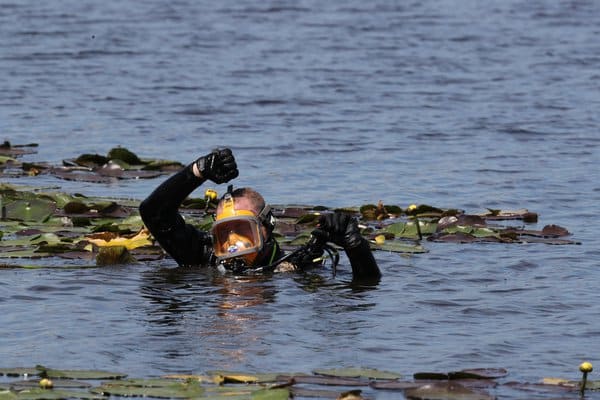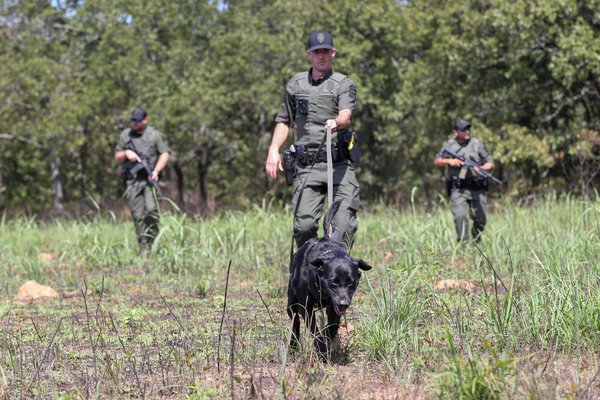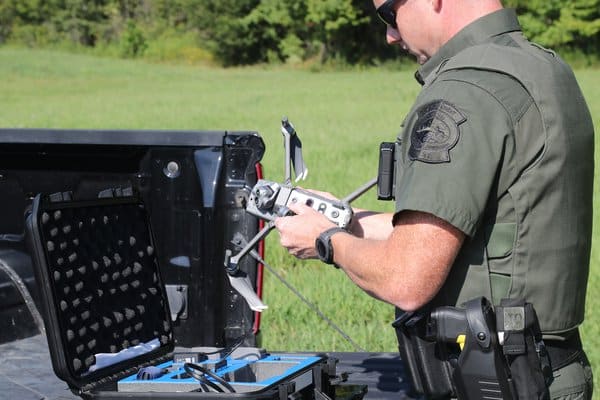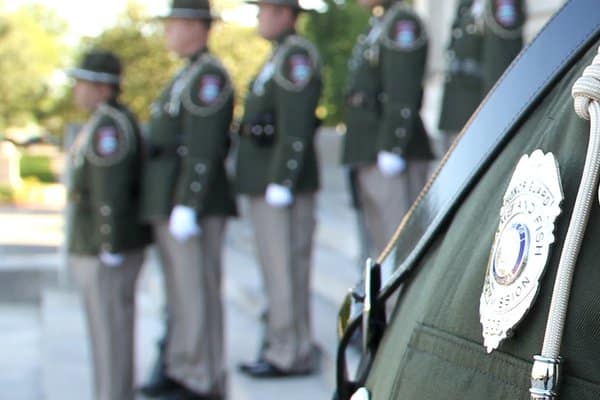Becoming a Game Warden
Applications for the 2025 Cadet Class are closed.
HONOR. INTEGRITY. PRIDE. PROFESSIONALISM.
Game wardens are certified law enforcement officers with statewide jurisdiction and full police authority. They are primarily responsible for the enforcement of all AGFC regulations, but are capable of enforcing all state laws as well. Game wardens work tirelessly to apprehend poachers who are illegally taking wildlife to protect Arkansas’s wildlife resources.
AGE
- Must be at least 21 years of age
EDUCATION
- Graduation from a U.S. high school, G.E.D. or equivalent from a U.S. institution is required.
TRAINING
- Must pass physical, psychological, vision and hearing exams.
- Must pass a physical fitness test which includes:
- 17 sit-ups in one minute
- 13 pushups
- 57% bodyweight bench press
- 300 meter dash in 105 seconds or less
- 1.5 mile run with a time of 24:53 or less
- Must complete a functional fitness evaluation which includes:
- 250m row
- 50 yard sled push at 100 lbs.
- 10 sandbag up and over bar
- 100 yard farmer carry at 35lbs./each
- 200 yard shuttle run
- Must be able to pass a swim test with includes:
- 100 meter swim
- 5 minute tread
- Recovery of a 3 lb. brick in 12 ft. water
- Must be willing to accept assignment anywhere in the state.
- Must complete the Commission’s intensive 33-week enforcement training course.
- Must work varied hours including weekends and holidays.
BACKGROUND
- Applicant must hold a valid driver’s license with good driving record, have no felony convictions, and must satisfactorily pass a thorough background investigation.
SALARY AND BENEFITS
- Starting Salary – $50,000 annually
- Uniform allowance- $1,000 one-time start up and $150 a month
- Partially paid group health insurance
- Annual and sick leave
- 11 paid holidays per year
- Pension plan
- Vehicle to conduct official AGFC business
The duties of game wardens are more varied than ever before. Their primary responsibility is to patrol their assigned county enforcing AGFC regulations and boating laws, while establishing and maintaining good relationships with the general public in the communities they serve. Game wardens are state law enforcement officers who are required to enforce local, state and federal laws. Game wardens present programs to schools, 4-H Club, Boy Scouts and other youth groups, as well as civic clubs and other organizations. They teach hunter and boating education classes, give radio and television interviews, answer nuisance animal complaints, assist other law enforcement agencies, help with fish and wildlife management programs, and perform many other duties. A game warden is called upon to work any hour, day or night, and must work weekends and holidays. Regular days off are scheduled on weekdays. It is a full-time job, requiring the highest standard of personal and professional conduct.
Special Operations

Wildlife violations sometimes lead game wardens underwater and the AGFC Enforcement Dive Team is ready. This group of highly trained divers responds to all areas of the state at any time, day or night. This team is trained to tackle the worst possible diving conditions, from body recovery to evidence searches. The Dive Team also patrols for divers who may be illegally harvesting game or endangered species.

AGFC game wardens work hand in hand with K-9 partners. Multiple K-9 units are positioned across the state to assist officers in the protection of wildlife and to track violators or lost individuals. K-9 teams spend many hours training to provide them with the ability to be proficient in article detection and tracking. AGFC K-9 units also participate in many public relation events at schools and festivals.

Drones are a tool that provide an aerial perspective to assist AGFC game wardens in the protection and management of Arkansas’ natural resources. Drones can also quickly access areas and provide a visual perspective for disaster response and other special circumstances where officer and public safety is a priority.

Honor Guard members are a very dedicated group of game wardens that performs flag presentations and funeral services for current and retired law enforcement officers. Each year a chosen few attend the National Police Week in Washington D.C. Honor Guard members participate in several events honoring fallen officers from across the nation during this event. Honor Guard members wear uniforms that represent the highest respect for families, officers and friends.
